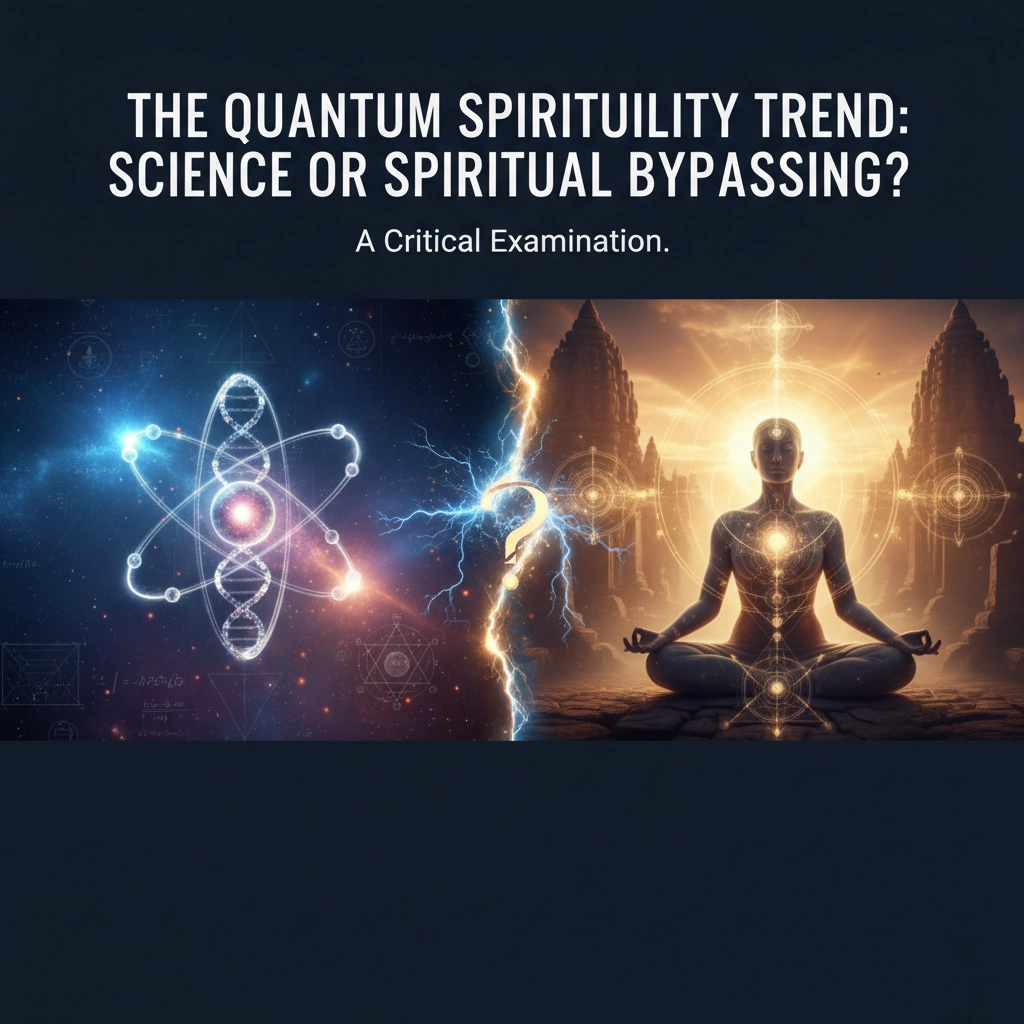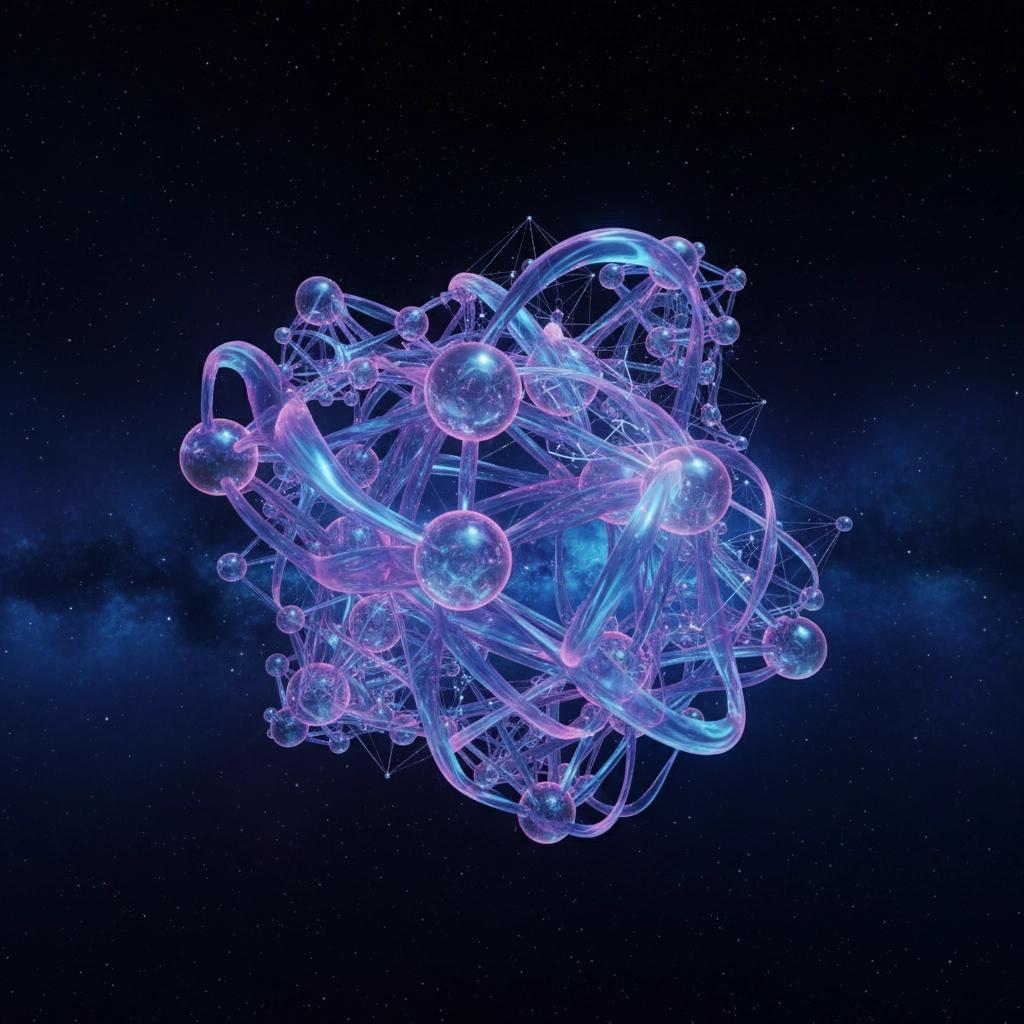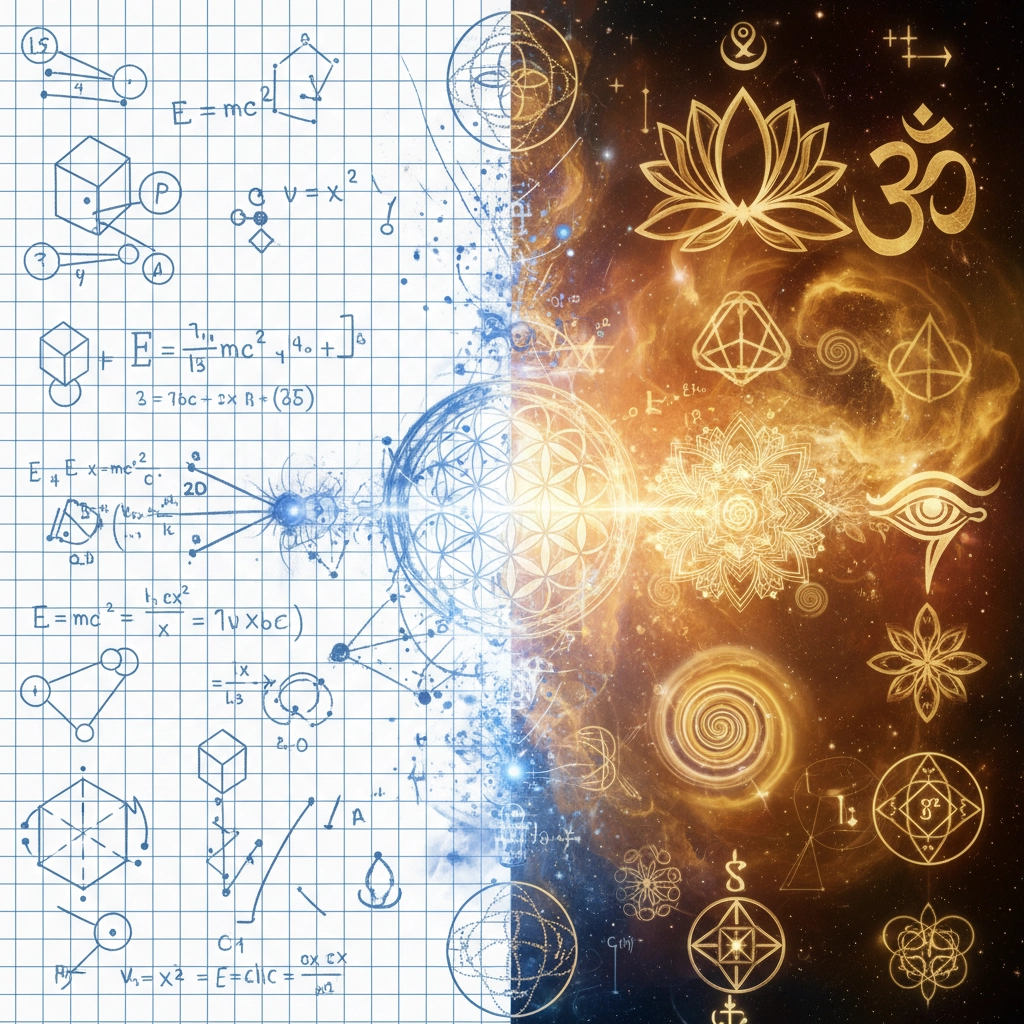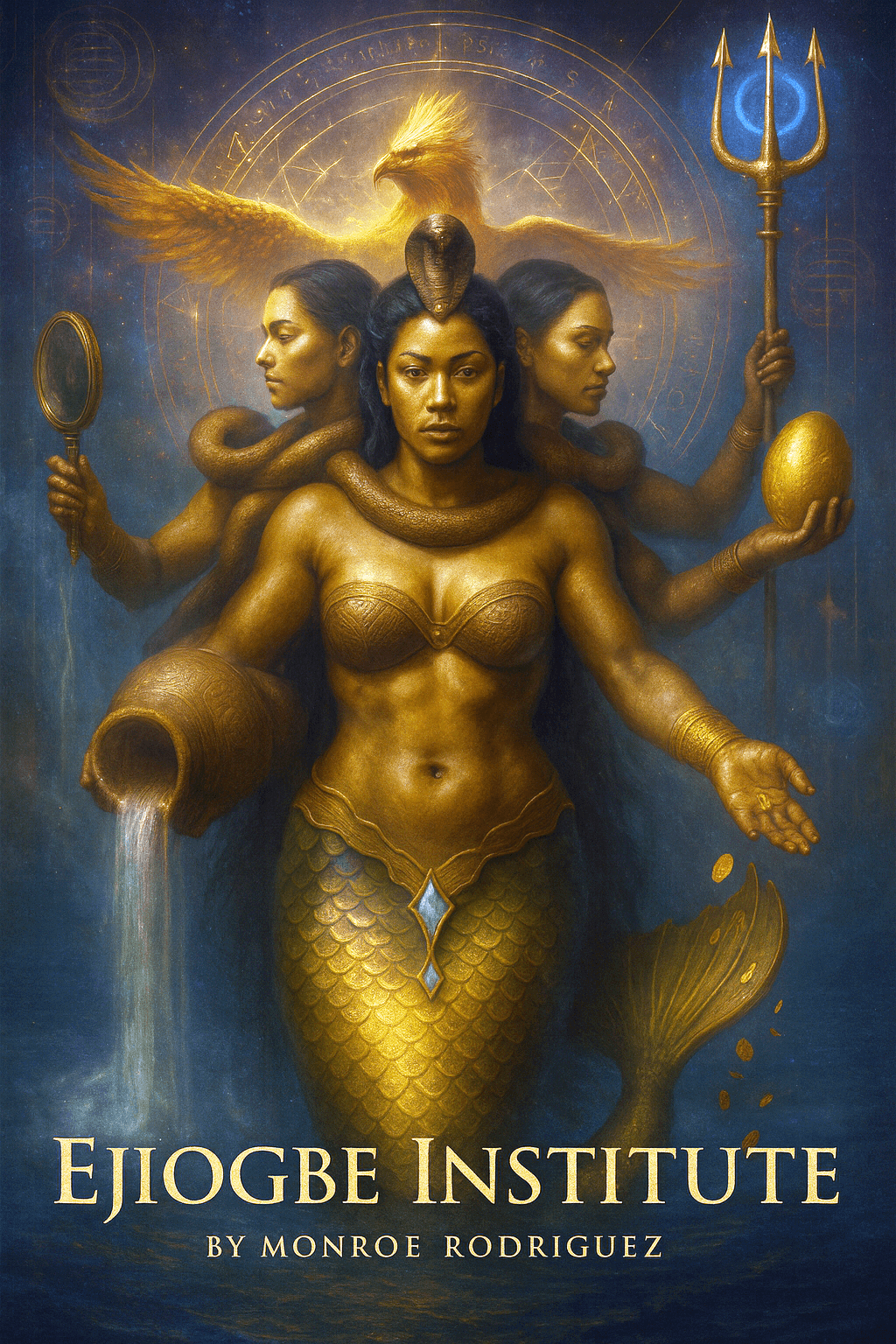
The Quantum Spirituality Trend: Science or Spiritual Bypassing?

Quantum spirituality combines cutting-edge physics with ancient spiritual concepts. This trend raises questions about legitimate scientific insight versus spiritual bypassing. Understanding the distinction matters for anyone exploring consciousness, healing, or personal transformation.
What Is Quantum Spirituality?
Quantum spirituality emerged from quantum mechanics discoveries that seem to align with mystical worldviews. Key quantum features include wave/particle duality, indeterminacy, and entanglement. These concepts offer analogies for theological mysteries and divine presence that classical physics appeared to eliminate.
The movement gained momentum through works like Fritjof Capra's "Tao of Physics." This led to synthesized "quantum mysticism" emphasizing mind, consciousness, and fundamental unity over pure materialism. The trend now permeates New Age spirituality, health consulting, coaching, and alternative medicine practices.

Scientific Foundations That Support Quantum Spirituality
Several quantum phenomena provide genuine scientific basis for exploring consciousness and interconnectedness.
Quantum Entanglement
Quantum entanglement demonstrates that particles once bonded remain connected across vast distances. Information appears to travel faster than light speed. This challenges reductionist materialism and provides a framework for understanding connection experiences across space and time.
Quantum Superposition and Observer Effect
Quantum superposition reveals particles can exist in multiple states simultaneously until measured. The observer effect shows that observation itself influences quantum systems. These phenomena suggest consciousness may be fundamental to reality rather than emerging from matter.
Orchestrated Objective Reduction Theory
The Orchestrated Objective Reduction (Orch-OR) theory proposes consciousness plays a crucial role in quantum wave function collapse. This potentially allows genuine free will and challenges deterministic worldviews.
Quantum Coherence in Living Systems
Research indicates biological organisms may exist in quantum entanglement with their environment. This raises questions about the nature of life and consciousness that deserve scientific investigation.

The Spiritual Bypassing Problem
Spiritual bypassing refers to using spiritual practices to avoid confronting psychological or emotional issues. Psychologist John Welwood coined this term in the early 1980s. Quantum spirituality contains problematic elements that align with this concept.
Deepak Chopra's "Quantum Healing" Example
Deepak Chopra, a medical doctor specializing in oncology, claims understanding quantum mechanics allows patients to make "quantum leaps" to new consciousness levels. He argues this improves cancer symptoms. Chopra states every cell is conscious and we're embedded in "one mind" or "cosmic intelligence" governing reality.
Such approaches may provide comfort but risk encouraging patients to bypass conventional medical treatment. This substitutes consciousness-based healing for proven medical interventions.
Commercialization Issues
The commercialization of quantum concepts in lifestyle consulting and alternative medicine often strips away scientific rigor. Practitioners maintain scientific-sounding language to lend credibility to unproven practices. This creates potential harm for vulnerable individuals seeking healing or transformation.

The Critical Debate
Critics' Position
Critics dismiss quantum spirituality as "quantum mysticism," "quantum quackery," or "quantum woo." They argue quantum physics doesn't prove spiritual or divine dimensions exist. Drawing connections between quantum phenomena and spirituality represents misunderstanding or misapplication of physics.
Proponents' Response
Proponents argue this criticism contains its own fallacy. Quantum physics doesn't need to prove spirituality exists. Rather, it invalidates scientific theories that claim to disprove spirituality. The empirical scientific method, focused on external observation, cannot definitively prove or disprove inner spiritual experiences.
Quantum discoveries reveal observable phenomena might be byproducts of consciousness rather than consciousness being a byproduct of material processes. This represents a fundamental shift from materialist assumptions dominating scientific thinking.
A Balanced Assessment
The quantum spirituality trend contains both legitimate scientific insights and problematic spiritual bypassing elements.
Legitimate Aspects
Quantum mechanics genuinely challenges mechanistic worldviews and opens space for consciousness-based understanding of reality. The mathematical formalism and experimental results of quantum physics are robust. Their philosophical implications deserve serious consideration.
Quantum physics provides a scientific framework compatible with spiritual worldviews. It validates the possibility of interconnectedness, consciousness as fundamental, and non-local effects while maintaining scientific rigor.
Problematic Elements
Problems emerge when quantum concepts are inappropriately extrapolated to support specific healing claims, lifestyle products, or spiritual practices without proper scientific validation. This risks misleading vulnerable individuals and undermining legitimate scientific inquiry into consciousness.

Practical Guidelines for Evaluation
Red Flags to Watch For
- Claims that quantum physics proves specific spiritual beliefs
- Products or services using quantum terminology without scientific backing
- Dismissal of conventional medicine in favor of consciousness-based healing
- Oversimplified explanations that ignore quantum mechanics' mathematical complexity
- Financial exploitation of vulnerable individuals seeking healing
Green Flags That Indicate Legitimacy
- Acknowledgment of quantum physics' limitations and uncertainties
- Integration with rather than replacement of proven medical treatments
- Recognition that quantum concepts suggest possibilities rather than prove certainties
- Transparent discussion of what science does and doesn't know about consciousness
- Ethical pricing and realistic expectations for outcomes
Moving Forward Responsibly
Rather than dismissing quantum spirituality entirely or accepting all quantum-inspired spiritual claims uncritically, discernment is required. Honor both scientific integrity and the profound questions about consciousness and reality that quantum mechanics raises.
Recommended Approach
Consider quantum physics as opening possibilities for understanding consciousness and interconnectedness. Maintain skepticism about specific claims while remaining open to legitimate research. Seek integration of spiritual practices with conventional approaches rather than replacement.
The intersection of quantum physics and spirituality represents fertile ground for expanding human understanding. Navigate it with both scientific rigor and spiritual wisdom. This balanced approach serves personal growth while protecting against exploitation or harm.
Next Steps
Explore legitimate research on consciousness and technology integration. Consider how ancient wisdom can complement modern tools without abandoning critical thinking.
The quantum spirituality trend will likely continue evolving. Staying informed about both scientific developments and potential pitfalls ensures you can benefit from legitimate insights while avoiding spiritual bypassing traps.
